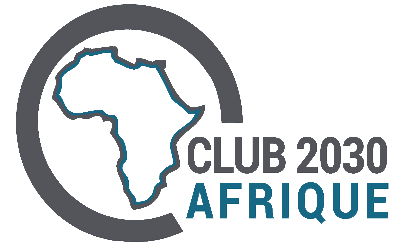Abstract:
Sub-Saharan Africa needs radical measures to improve the current supply of electric power. Such measures include making significant investment in electricity supply infrastructure. However, for these measures to be meaningful a key barrier to infrastructure investment on the continent, notably the understanding and valuation of risk, should be directly addressed.
- There are many opportunities for investing in SSA’s electricity supply infrastructure, including the conversion of natural gas-to-electric power.
The absence of adequate and reliable supply of electric power is arguably the most critical infrastructural deficiency facing Africa today, and its continued absence poses a significant threat to the sustainability of the recent high levels of GDP growth and poverty alleviation experienced on the continent. Approximately two-thirds of SSA’s population (~600 million people) currently do not have access to electric power and the cost of doing business is significantly higher than would otherwise be the case, with living standards suffering as a result.
There exists an abundant supply of natural gas on the continent, which, with the appropriate electricity generation and distribution infrastructure in place, can be channeled towards the competitive supply of electric power. For example, there is an identified potential to produce approximately 400GW of electric power from natural gas in SSA. 60% of this output potential is shared between Mozambique, Nigeria and Tanzania (McKinsey & Company, 2015).
There are also significant opportunities for gas-to-electric power infrastructure investment in SSA. In fact, gas-to-electric power is predicted to become the dominant generation technology in this region by as early as 2020, accounting for about 40% of total power output by that date (McKinsey & Company, 2015).
- These opportunities are however not being adequately utilized due to negative perceptions about the level of institutional risk in SSA.
The rate of development, completion and actual commissioning of gas to electric power infrastructure has been far slower than the abundance of opportunities for electricity supply and unmet electricity demand in SSA would theoretically suggest. This realization remains unaltered even when the impact of multilateral initiatives such as Sustainable Energy for All, Power Africa and Energy for Africa, all of which aim at promoting investment in SSA’s electricity supply infrastructure are considered.
One explanation that is often proffered as to why the needed infrastructure investments have so far not been forthcoming in satisfactory magnitudes is the level of “institutional risk” that is perceived to be present in SSA economies. Institutional risk in this context may be defined as the probability that invested funds could be mis-appropriated due to rent-seeking practices by dubious public officials, that investments may be nationalized in an environment characterized by weak public institutions and rule-of-law, or that recurrent impediments to the ease of doing business will render a business model ineffective.
The argument is that uncertainty over investment returns owing to the level of institutional risk in SSA countries makes raising funds from the global financial markets or from potential investors for energy infrastructure investment difficult or prohibitively costly, since such investors would naturally prefer other less risky alternatives or geographies.
- The problem of institutional risk in SSA can be resolved through a transparent and credible risk valuation process.
It is my opinion that such hindrances to investment as institutional risk can be readily resolved when there is adequate information that allows for the transparent valuation of this type of risk in an SSA context. This valuation can then be appended as a risk premium to the cost of investment, with an appropriately structured guarantee/ financial instrument raised to cover the risk premium such that it no longer distorts a potential investor’s ‘willingness to invest’.
- A platform is needed that convenes ‘risk knowledgeable’ actors on the supply and demand sides to negotiate the terms of a tenured ‘infrastructure investment compact’ that will both value & capture this risk.
The important question begging to be answered at this point is ‘what type of mechanism would be required to adequately value institutional (and related) risks in an SSA context, and why are the existing financial markets/ institutions under-equipped to do this. A simple and probable reason why the existing financial markets are ill equipped to adequately value such risk sis the paucity of information and clarity about how SSA markets/economies actually operate.
Such information resides not with analysts in global financial centers such as London, Paris, Frankfurt, New York, Hong Kong or Beijing, but on the ground amongst actors who are already embedded in the target locations on both supply and demand sides – spanning the public, private or civil-society sectors.
What is needed is a platform that brings a set of critical and knowledgeable actors together (representing all the relevant sectors) and to have them negotiate what the risk premium would be in real value terms, in order to guarantee that a given infrastructure investment in a given SSA location would operate under pre-agreed terms for a defined tenure.
The outcome of such a platform would be a negotiated investment compact between a carefully selected set of actors that, while not necessarily pre-empting all conceivable eventualities or states-of-the-world that would be relevant to an intended electricity infrastructure investment, would provide a credible and binding start-point for eventual re-negotiations of the investment terms.
- Moving forward.
Relevant actors to be invited to participate in the platform would include financial institutions, electric power project developers, utilities and private companies on the supply side that are willing/ ready to invest. Also included would be off-takers on the demand side with the power to underwrite/ guarantee a power purchase agreement for the infrastructure’s output.
In addition there will be regulators and national or municipal authorities that are responsible for defining the political and juridical framework in which the infrastructure investment will be developed and operated.
Finally, representatives of local communities that define/ determine the socio-cultural environment in which the investment will reside should also be allowed to participate.
Bibliography:
Brighter Africa: The growth potential of the sub-Saharan electricity sector. McKinsey & Company, 2015



